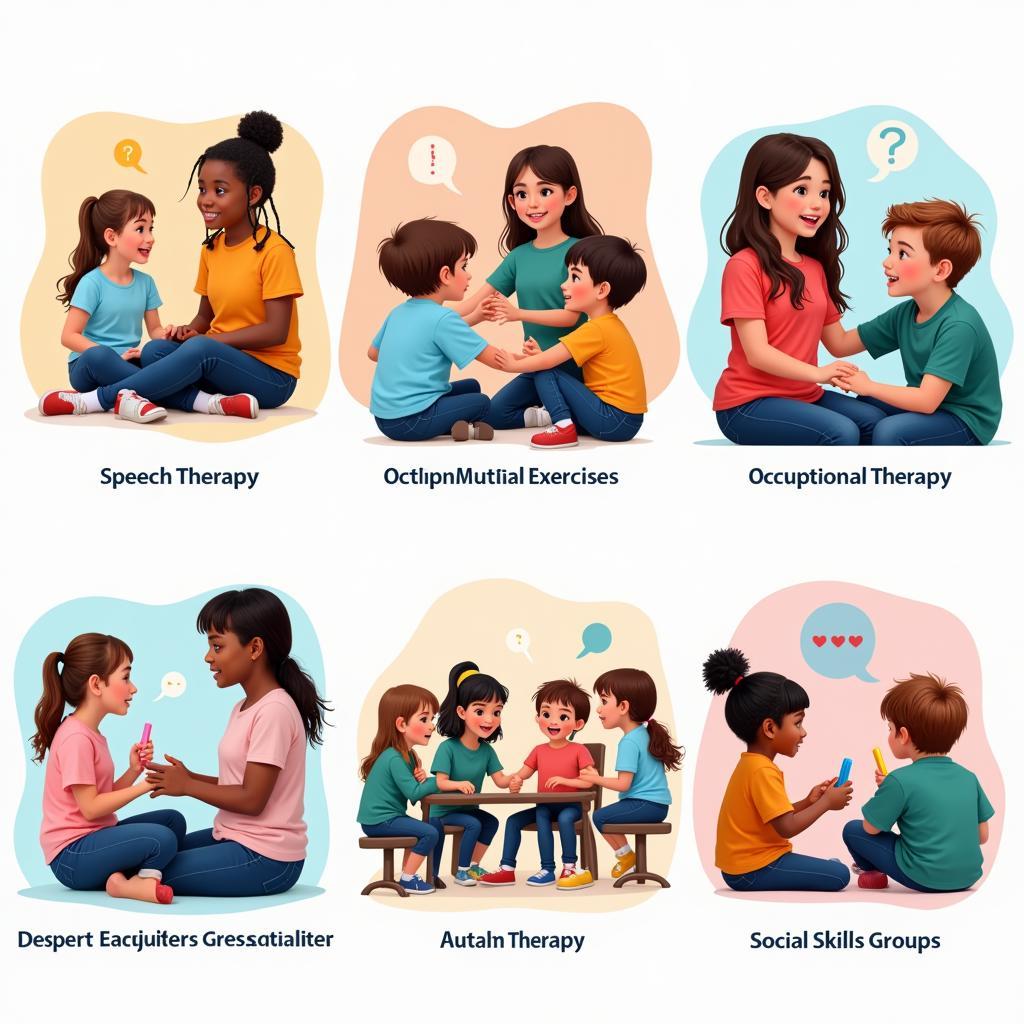The internet is awash with claims about ASEA water and its supposed benefits for autism. However, it’s crucial to approach these claims with a healthy dose of skepticism. As of now, there is no scientifically valid evidence to support the idea that ASEA water can cure, treat, or improve the symptoms of autism.
Understanding Autism Spectrum Disorder (ASD)
Autism Spectrum Disorder (ASD) is a complex neurodevelopmental condition that affects communication, social interaction, and behavior. It’s called a “spectrum” because it encompasses a wide range of challenges and strengths. Each individual with autism is unique, and symptoms can vary widely.
 Children of different ages representing the autism spectrum
Children of different ages representing the autism spectrum
What is ASEA Water?
ASEA water is a beverage marketed as a “redox signaling supplement.” It’s essentially saltwater that has undergone a process called electrolysis, which alters the chemical structure of the salt. Proponents claim this process creates “redox signaling molecules” that offer various health benefits.
The Science (or Lack Thereof)
While redox signaling molecules play a vital role in cellular health, there’s no credible scientific evidence to suggest that drinking ASEA water can increase their levels in the body or provide any specific health benefits.
Furthermore, no reputable studies have demonstrated a link between ASEA water and improvements in autism symptoms.
The Dangers of Misinformation
Promoting unproven treatments for autism can be harmful for several reasons:
- False hope: Families desperate for a cure or effective treatment may invest time, money, and emotional energy into ASEA water, only to be disappointed.
- Delayed intervention: Relying on unproven treatments can delay or prevent individuals with autism from accessing evidence-based therapies and interventions that could make a real difference in their lives.
- Financial exploitation: The marketing of ASEA water and similar products often preys on the vulnerabilities of families affected by autism.
Focusing on Evidence-Based Approaches
While there is no “cure” for autism, a wide range of evidence-based therapies and interventions can help individuals with ASD develop skills, manage challenges, and lead fulfilling lives.
 A collage showcasing various autism therapies like speech therapy, occupational therapy, and social skills training.
A collage showcasing various autism therapies like speech therapy, occupational therapy, and social skills training.
Some of these approaches include:
- Applied Behavior Analysis (ABA)
- Speech and Language Therapy
- Occupational Therapy
- Social Skills Training
It’s essential to work with qualified healthcare professionals who specialize in autism to develop an individualized treatment plan that addresses the specific needs of the individual.
Seeking Reliable Information
Navigating the world of autism information can be overwhelming. It’s crucial to rely on credible sources and be wary of anecdotal evidence or testimonials.
Reputable organizations, such as:
- Autism Speaks
- The Autism Society
- The Centers for Disease Control and Prevention (CDC)
provide evidence-based information and resources for individuals with autism, families, and professionals.
Conclusion
While the desire for effective treatments for autism is understandable, it’s essential to approach claims about ASEA water with a critical eye. There’s currently no scientific evidence to support its efficacy, and promoting unproven treatments can be detrimental. Focusing on evidence-based therapies and interventions, along with seeking support from reputable sources, offers the best path forward for individuals with autism and their families.
Frequently Asked Questions
1. Has ASEA water been tested on individuals with autism?
There are no published, peer-reviewed studies examining the effects of ASEA water on individuals with autism.
2. Are there any potential side effects of ASEA water?
ASEA water is essentially saltwater. While generally safe for consumption, excessive salt intake can have adverse effects.
3. What should I do if I’m considering ASEA water for my child with autism?
Consult with your child’s pediatrician or a qualified healthcare professional specializing in autism before making any decisions about treatments or supplements.
4. Where can I find more information about evidence-based autism treatments?
Reputable organizations like Autism Speaks, the Autism Society, and the CDC provide comprehensive information on evidence-based practices for autism.
5. Is there a cure for autism?
There’s currently no cure for autism, but early intervention and ongoing therapies can significantly improve outcomes and quality of life.
Need More Information?
Contact us for support:
Phone Number: 0369020373
Email: aseanmediadirectory@gmail.com
Address: Thon Ngoc Lien, Hiep Hoa, Bac Giang, Vietnam
Our dedicated customer support team is available 24/7 to assist you. Explore more articles and resources on our website!


